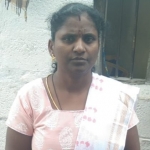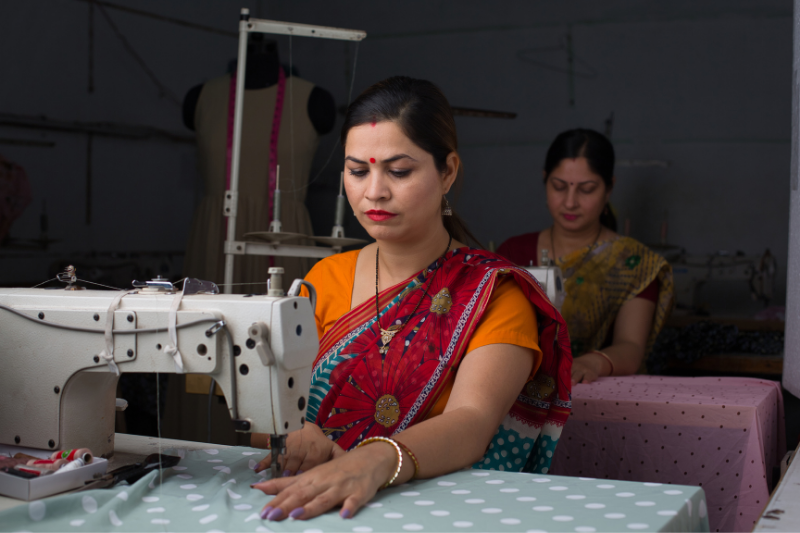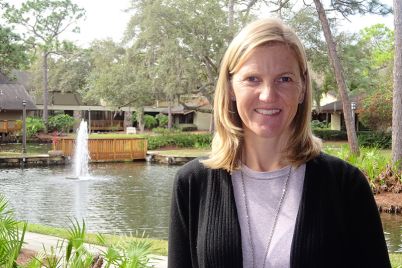American and European fashion brands demand low prices and high production from their factories, creating an environment where suppliers must make workers produce quickly for low wages, often through abusive methods.
BY JEEVA M, Tamil Nadu Textile and Common Labour Union
Jeyasre Kathiravel was a 21-year-old member of my union, the Tamil Nadu Textile and Common Labour Union (TTCU). She worked 10-hour shifts as a garment worker every day at Eastman Exports, from late evening to early morning, producing clothing for major U.S. and European fashion brands to pay for college. She was the first woman from our village to enter the local university.
She was murdered this past January by her supervisor after facing months of sexual harassment from him. Gender and caste discrimination played a part in her murder, and she was one of 13 Dalit women murdered every week in India.
In our union’s fight demanding #JusticeForJeyasre, we’re seeking justice from the global fashion brands who depend on a system of exploitation, sexual harassment, and violence to create cheap clothes fast.
American and European fashion brands demand low prices and high production from their factories, creating an environment where suppliers must make workers produce quickly for low wages, often through abusive methods. Workers in the garment industry have reported that “physical discipline practices spiked after second-tier management came out of meetings with senior management driving production targets.”
Supervisors at Eastman Exports have even hurled heavy bundles of clothing at workers. Women garment workers are often subjected to insults, unwanted touch, and verbal abuse. And, in some supplier factories, women are made to perform sexual favors in exchange for fundamental rights such as breaks, overtime pay, and scheduling needs.
This combination of pressure from above and power disparities on the shop floor leads to a culture of bullying and coercion. It can ultimately result in sexual harassment, rape, and even femicide.
I would know. I’ve seen it play out with my fellow union members and former co-workers.
At Eastman, after Jeyasre’s murder, 25 other women came forward with reports of sexual harassment, bravely breaking their silence and highlighting how widespread sexual harassment is within the factory and the garment industry overall.
This culture of sexual harassment had been allowed to fester at Eastman Exports for far too long, becoming deadly. Supervisors use rude or abusive language toward women workers to try and speed up production.
If they continue without consequences, it signals that they can go farther. In time, they start coercing women workers to perform sexual favors that can eventually lead to rape, femicide or suicide.
Jeyasre experienced multiple acts of violence and harassment along this spectrum before she was murdered. Had these acts of harassment been prevented or penalized early on, Jeyasre would most likely be alive today.
Management at Eastman Exports must take responsibility for their managers and their working conditions, period. However, the global fashion brands ultimately profit most from high production and low wages in these factories. And it’s these purchasing practices that drive worker exploitation and gender and caste-based violence and harassment.
As the General Secretary of the TTCU, I’m organizing alongside other Dalit women garment workers to demand enforceable binding agreements to end gender-based violence from Eastman Exports and the global brands that source from them. Such agreements would provide women workers and TTCU with the ability to monitor, prevent and remediate gender and caste-based violence and harassment in the factory.
Enforcement from the top would ensure workers have the right to freedom of association and would reverse the purchasing practices that drive suppliers, like Eastman, to exploit and coerce workers.
Through the #JusticeForJeyasre campaign, we’re demanding real protection against the violence and harassment that have plagued and even killed our fellow workers. We’re demanding an end to global fashion brands’ exploitative purchasing practices because we can’t allow any more of our friends and neighbors to be murdered.
 Jeeva M is the general secretary of Tamil Nadu Textile and Common Labour Union (TTCU), a Dalit women-led trade union, representing 11,000 women workers in Tamil Nadu, India.
Jeeva M is the general secretary of Tamil Nadu Textile and Common Labour Union (TTCU), a Dalit women-led trade union, representing 11,000 women workers in Tamil Nadu, India.








